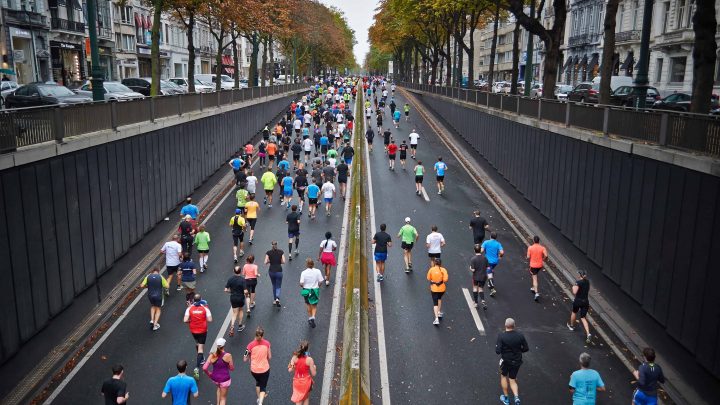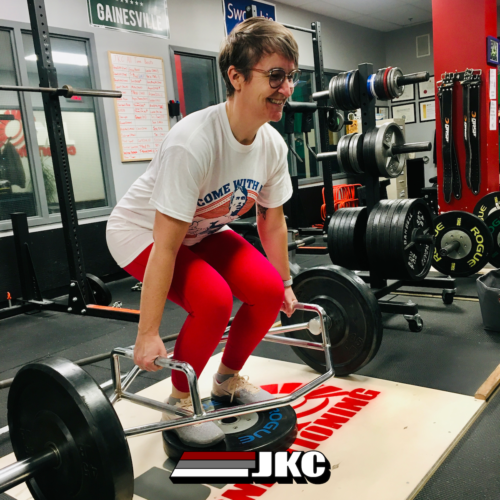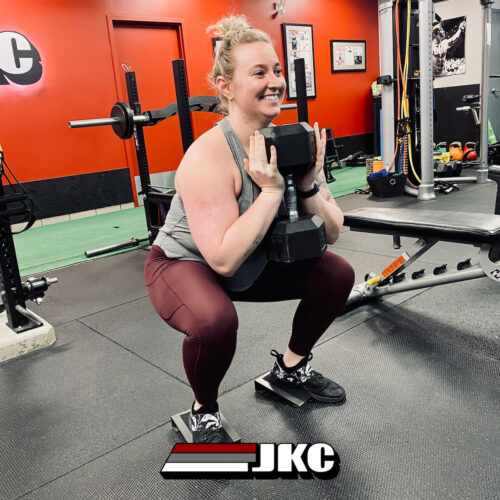By Julia Howard, VDot02 Distance Coach, RHN, MPH
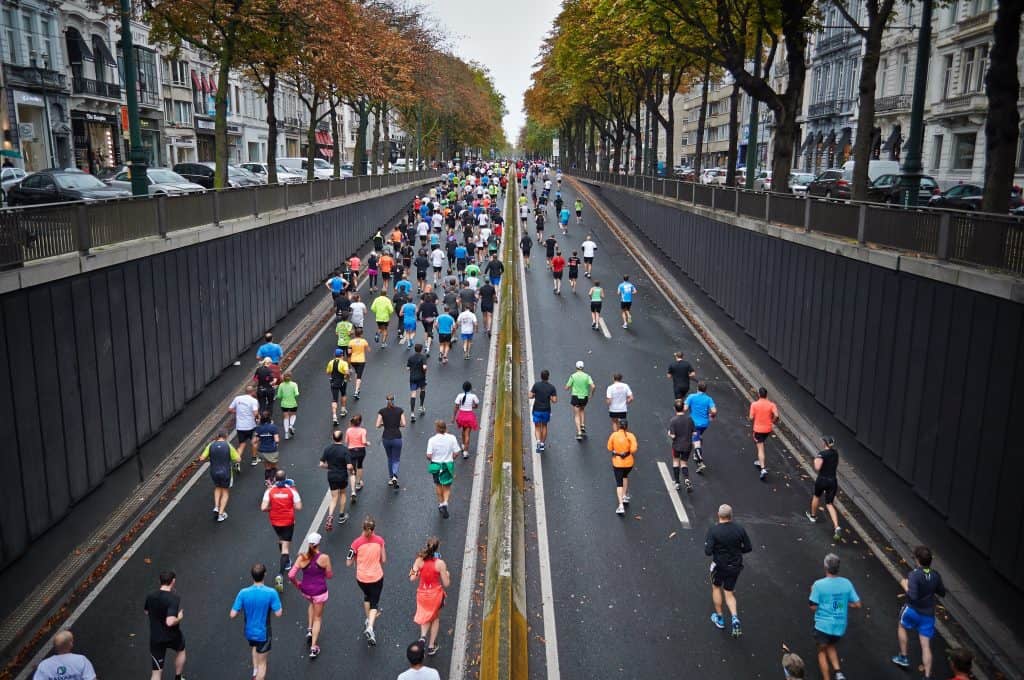
Have you ever had a vision of your perfect race day, only to have it go completely into flames on the actual day?
Many runners are so extremely routine oriented that the moment we get out of our usual environment and pre-race nerves get involved, we’re like deer in headlights, forgetting the goal and what our bodies really need to get there.
This can be related to a number of factors like challenges finding our regular foods and new sleeping arrangements but, simply a new environment and some extra time to think can spell trouble.
Here are some examples how we can sometimes let both our habit-based rigidity and our pre-race excitement get in the way of our goals.
(How many of these examples come directly from personal experience? Only my closest running buddies will know.)
Example #1. All I need is a banana. Only a banana will do.

Okay, full disclosure on this one. Several years ago, I was in Oregon for a track race and I was looking to have my pre-race meal. I had gotten into the habit of eating a banana before every race and just assumed that the hotel would have some left when I went down to the lobby. No luck.
Okay, I thought, I’ll just walk to the nearest grocery store or gas station. Fifty minutes later, I finally arrived back at my hotel with the only banana I could find within the 5 kilometre food desert radius of my hotel, and a heavily bruised one at that.
So, the race didn’t go well since my legs were kinda… Fried. And the lesson here is… An hour walk on race day is TOO MUCH! Just order something light where you’re at and try not to worry about it. Most hotels have toast and peanut butter. Throw some honey on it and relax. Or, better yet, bring some oatmeal, peanut butter, and your own banana.
Example #2. Hours from race time: Those sweet potato fries look good. And they’re gluten free.
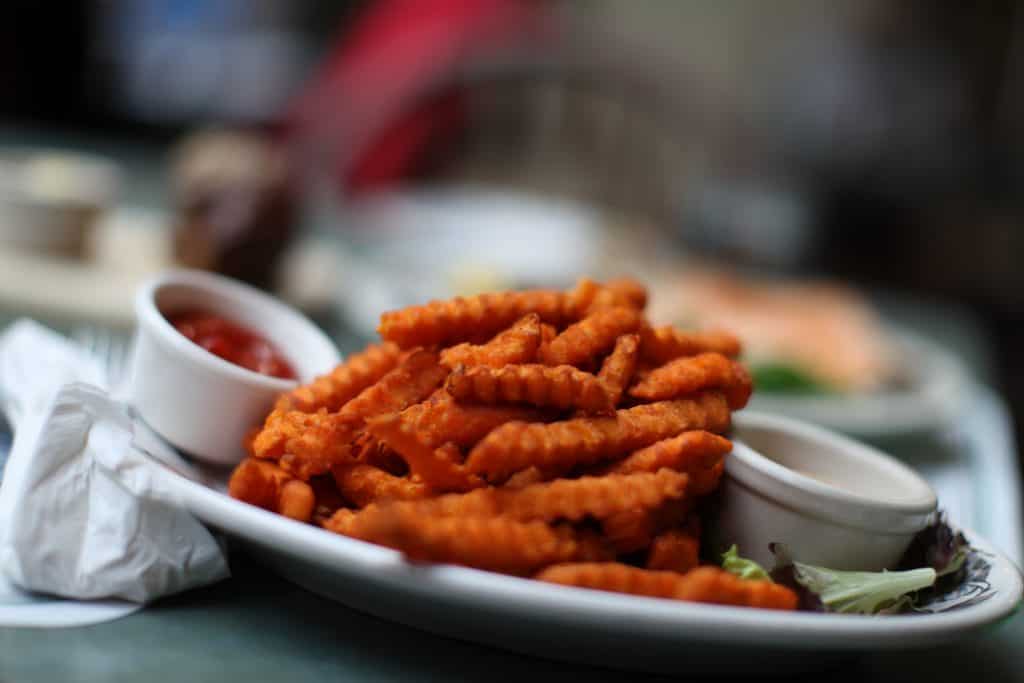
Sorry, but you’re not on vacation. (Yet.) Also, your digestive system is probably working less efficiently because you’re nervous so, any meals with a lot of added fat is probably a very bad idea. You might be able to get away with it during a short race but over a longer distance, your intestines may become inflamed and try to get rid of those tasty fries. And quickly.
You may also feel pretty sluggish on your warm-up because your poor digestive system is working hard to process what you ate, leaving your muscles with less blood to work with. Digestion is hard work! So is running. Make sure to leave enough energy for your body to do both.
Example #3: I’m running a long race and need to carb-load. All hands to the nearest Italian restaurant!

I was trying to find a restaurant to eat at before my last race and was looking at the menus of some nearby Italian restaurants. All they had were creamy pastas. I steered clear.
Creamy sauces may cause digestive issues for some people due to their high saturated fat content. Also, depending on what type of cream or milk is used, if you are lactose intolerant, you may experience gas, bloating, cramping, and diarrhea.
Population level research indicates that about 70 percent of adults are lactose intolerant since most of us are genetically programmed to stop producing these lactose enzymes, the enzymes that digest milk sugar, as we reach adulthood. Not only that but, some people also have issues digesting wheat-based pastas, usually due to either a gluten intolerance (less common) or a FODMAP intolerance (more common).
Other complex carbohydrate options may actually be better suited to your unique digestive system needs like quinoa, rice, sweet potatoes, squashes, and white potatoes.
Example #4. Those 4 cups of coffee have nothing to do with my stomach issues, my inability to focus for long periods, or my paralyzing anxiety.

Caffeine can be a great (legal) performance enhancer in the optimal dose for each person. However, not all of us are well-suited to drink coffee as our optimal source of caffeine. I was in denial about this for a long time myself, despite being a coffee lover since graduate school.
For long races and training runs, drinking coffee before hand usually spelled disaster for me either during the effort itself or for a few hours afterward leading to an overactive digestive system and sometimes painful stomach cramping.
Not only that but, coffee can negatively impact levels of concentration in some people. If you are sensitive to coffee but still want to benefit from caffeine, try a black or green tea instead. For extra focus, L-Theanine, an amino acid found in tea, has been shown to help people’s brains achieve an alpha-wave state, which is said to be correlated with a state of “relaxed wakefulness”. Sounds good to me.
Example #5: I must eat really well leading up to the race. This kale and beet salad will give me all those great nitrates everybody is talking about.

I’m a nutritionist and I’m here to tell you: “It’s possible to eat too much salad”. Raw leafy greens, like kale, can be very rough on the intestines and difficult to digest. Kale, although extremely good for you, is also a cruciferous vegetable, which can cause bloating in some people. And finally, insoluble fibre isn’t a good source of fuel for your muscles so despite making you feel full initially, you’ll probably get hungry pretty quickly.
So, proceed cautiously with salad leading up to your race. Steamed, sautéed, boiled, or roasted vegetables may be a better option during this time. Also, don’t freak out if you see red pee on race day. That’s probably just the beets. Unless you didn’t eat beets, then you should probably consider other possibilities.
Example #6: My throat hurts. I could have picked up some illness on the plane.

It’s entirely possible that you are fighting some kind of infection, as planes do tend to be quite germ-ridden. However, you could just be verrrry thirsty. It can actually be drier than a desert on a plane. Focus on drinking water for a few hours and then see how you feel.
Research points to some other strategies that may be associated with a decreased risk of getting a cold or upper respiratory tract infection. Some of these include supplementing with vitamin D and omega-3, a multi-strain probiotic, and consuming lots of veggies and fruits. If you have trouble getting in your veggies, a whole food supplement may be helpful. (To receive a 10% discount on Genuine Health products linked here, use the JKC discount code, jkcdragons).
Example #7: My sleep the night before the race was horrible. My race is over.

I think it’s always best to just assume that your sleep the night before a race will be crappy: you’ve tapered, you’re excited, and you may also be sleeping in a new bed. That way if you actually have a decent sleep you’ll be pleasantly surprised.
However, while it’s one thing to lie in your bed resting, it’s another thing to lie there ruminating. If you find yourself doing a lot of worrying, try having a cup of calming chamomile tea, do some deep breathing, and distract yourself with a good book or podcast. My favourite podcasts for offering up some positive, reassuring energy are the Rich Roll Podcast and the Tara Brach Podcast.
Also, be assured, one night of crappy sleep won’t make or break your whole race.
Example #8: My, my, my this new city is beautiful. I’ll just do a bit of a tour on my shakeout run the day before the race.

As hard as it is, try not to do this. Travelling for races is fun but you may start to realize you’re getting to know more airports and hotel rooms than historic sites, museums, or shopping malls. Sometimes you just need to pick a quaint coffee shop to hang out at with your latest book and then call it a day.
Example #9: I’m gonna bring my [insert recovery tool here] that I never use at home. That’ll lead to a PB.

Not a good time to try something new! Don’t block up your suitcase with foam rollers and massage sticks.
However, if you’re already doing self-massage and activation work regularly, some useful items that don’t take up much space are a mini-band (glute/hip activation), a golf ball (plant fascia stretching and trigger point release), and a hockey ball (piriformis, psoas, pectoral muscle, lower trap, and calf trigger point release).
Don’t forget to leave space for medals and race shirts! Maybe even a new pair of runners if you went really crazy. 😉
Mini-bands are great for hip/glute activation and don’t take up much space in your luggage.
Example #10: My friends from [insert social construct] live here! I can’t wait to spend lots of time with them before the race. That’ll be a good distraction.
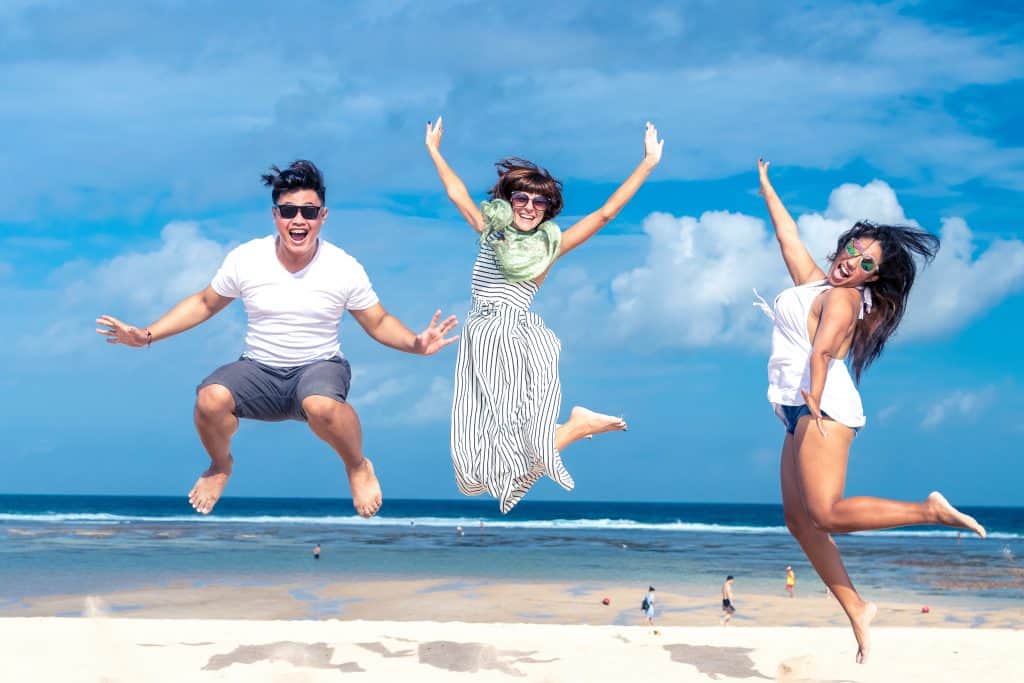
The answer to this one depends on how well you know yourself. Are you an introvert or an extrovert? How well do you know this friend? If hanging out with this person will make you feel comforted and relaxed while you’re in a new place then, awesome. But, if this person is pretty high energy and wants to chat about the last 10-15 years since high school or university then, maybe you should wait until after the race.
Interested in Run or Nutrition Coaching to Help You Set that PB? Get in Touch!
Thanks for reading,
~Julia 🏃♀️🥦
Affiliate Link Disclosure: The product links in this blog post are affiliate links which means we receive a small commission on the sale of these products.

